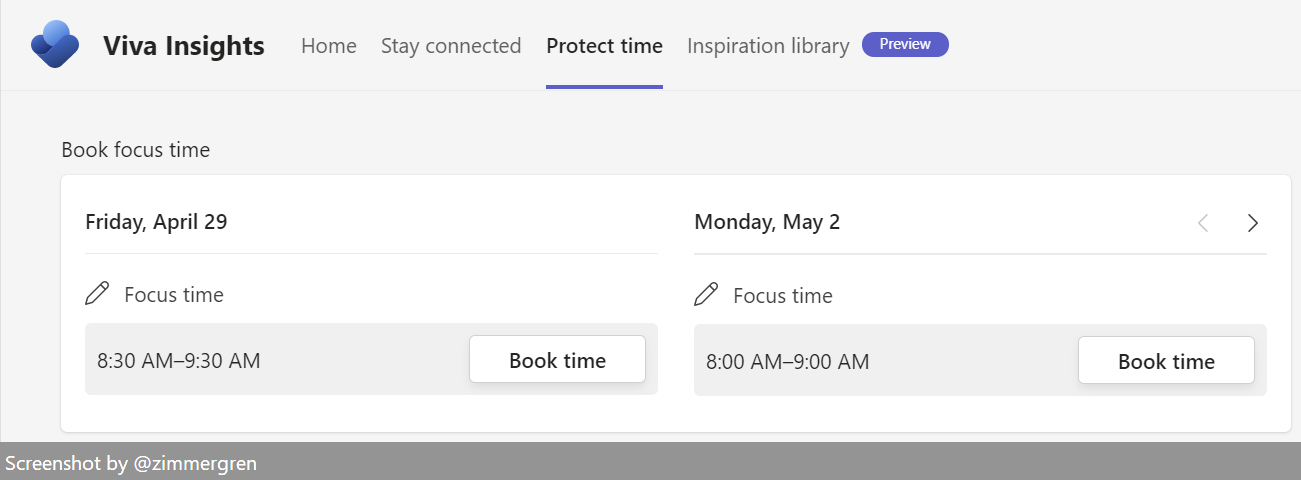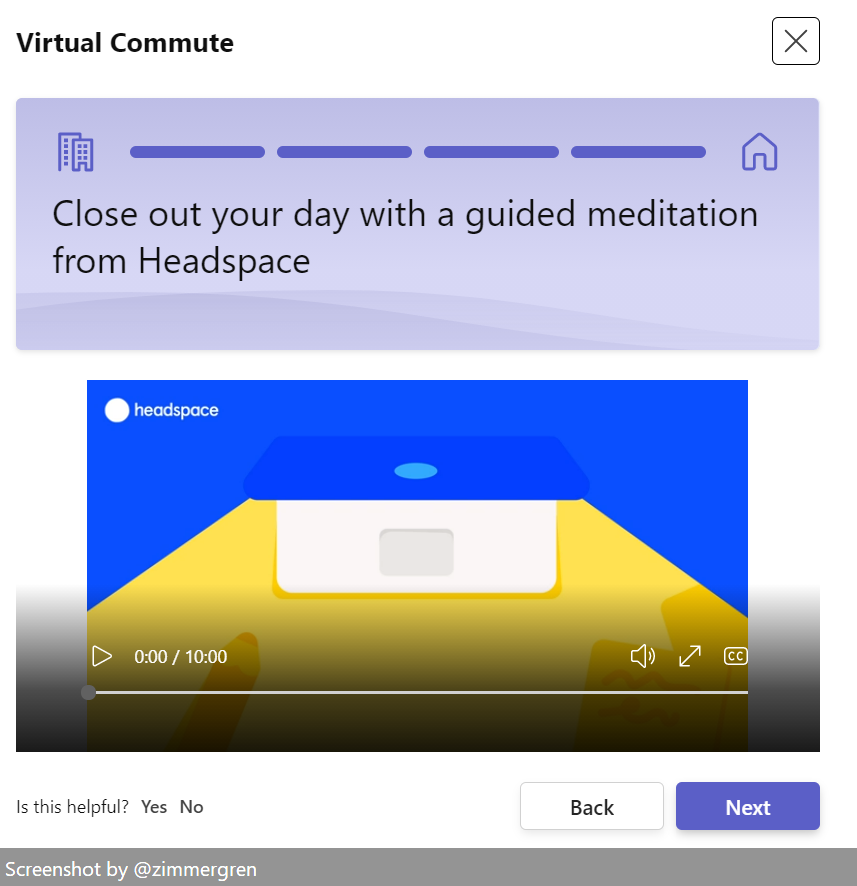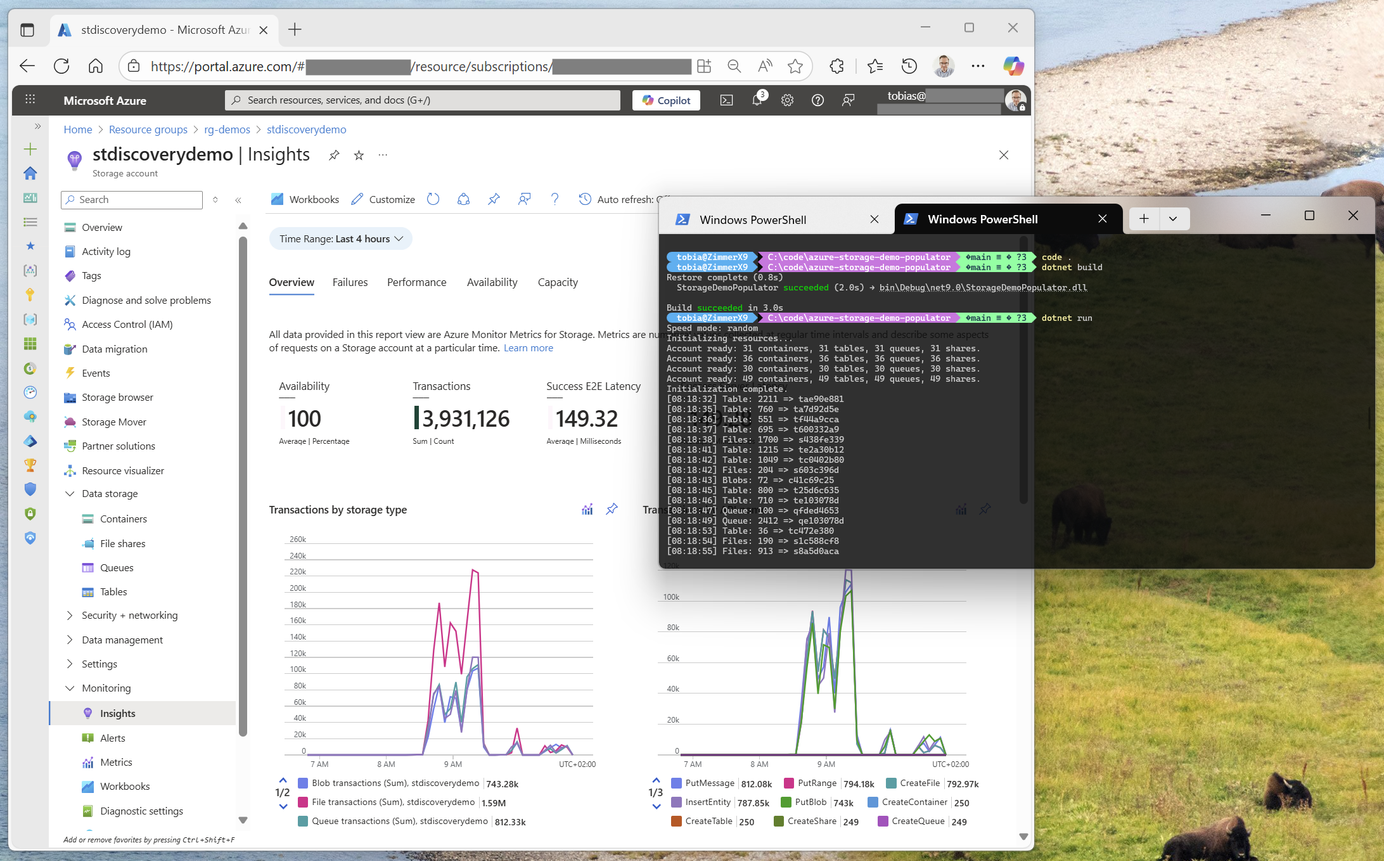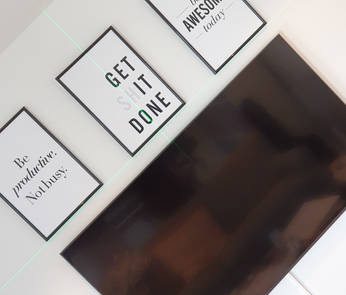
Three habits to improve health and work-life balance
I've worked remotely for more than eight years. Here are my thoughts on how I improved my health and my work-life balance over the years.
Table of Contents
In recent months I have spent countless hours discussing work-life balance with friends, family, and peers in the industry. It's interesting how various things are critical aspects for some but entirely irrelevant for someone else.
To summarize my thoughts on the discussions, I'm outlining three habits and routines I have fine-tuned over the last few years.
I have worked remotely for the last eight years, and I will continue to do that in the foreseeable future. I love it for many reasons, but there are challenges, too. I found my work-life balance through discipline and habitual thought processes.
Habit 1: The art of saying no
I'm sure some of my colleagues, friends, and family would agree with me on this one. Together, we get more things done when we have a realistic expectation of what we can achieve. Individually and together. Don't accept more than you can deliver.
Saying no isn't about simply rejecting things coming our way or getting out of additional work. Saying no is primarily about protecting the one thing we all have the same amount of in a day. Time.
Say yes to the wrong things, and you might find yourself working on irrelevant tasks that do not contribute to the plans or outcomes you expect. Say yes to the right things, and you will find the outcome different.
Saying no to work tasks also does not mean we don't want to achieve the assignment. Can it be delegated? Is there someone in your team or network that would be a better fit for helping out with this particular task?
Expectation management
I also have a habit of setting expectations. I refer to this as "expectation management". Whether this is with your family or friends, or something at work, setting correct expectations will tremendously increase efficiency and productivity and ensure everyone is aligned on what needs to be done. Saying no contributes to setting expectations - it doesn't have to be a blatant "No", but as per above, you can ask yourself and the people requesting the work how we could better achieve this task.
Leading people and leading work for others comes with a lot of expectations. You may have expectations of your colleagues, but perhaps foremost, the expectations others have of you as a leader.
Don't just manage and dictate directions. Help them achieve more by leading the way. Help them grow. Foster an inclusive growth culture and grow together.
You don't always control your time
Depending on the organization and the culture, you may not always be in a position to control your time. Perhaps your calendar will be injected with many meetings and presentations dictated by someone else in your team, another team, or somewhere up the chain.
Working cross-team is an essential capability for successful collaboration in big organizations, and we can't just say no to everything that comes our way. There will always be a challenge and a tradeoff. Which meetings are must-attend, and which are less important?
When you can figure out which of these are essential tasks, it becomes easier to balance the art of saying yes or no, depending on the expected outcome of the work you've been asked.
Of course, there are no absolute rights or wrongs here. Everyone and every organization are different.
To balance this, I often also find myself saying Yes to requests from colleagues because I understand the effort it takes and that we usually can achieve more together. Saying yes is powerful and has an impact, especially when we already understand our time management capabilities and have filtered out the less important tasks from the important ones.
Say yes when you know you can deliver, and you will achieve a lot more. Individually and together.
I have spent many hours the last years discussing burnout with people in our industry, and often I see people hurting because they are overwhelmed. Unfortunately, sometimes it's out of their control - but more often than not, it seems to come down to expectation management and the art of answering truthfully to incoming asks.
In short
Saying no really comes down to a few things:
- Setting boundaries.
- Expectation management.
- Ensure you spend time on the most important things first. Perhaps in agreement with your team or manager - manage expectations.
- Understand what you can achieve and what is out of reach for now.
- Get the right things done.
- Control and protect your time.
I found a relatable resource for "How to say no" worthy of checking out.
- How to say No (Personal Excellence)
Habit 2: Be productive. Not busy
This mindset is perhaps a blend of habit and realization. I often speak with individuals who have no time left on their days because they are overwhelmed. I've often contemplated this myself during times of intense workloads and busy schedules.
The saying goes: Busy people work hard. Productive people work smart.
Let's be honest here. I am also busy a lot. My workdays are filled with work; my after-hours are filled with family and extracurricular activities.
I think this saying is excellent, but even when we work on the right things and are productive, we are busy, too. So perhaps this statement should be: "Be productive. Don't just be busy."
Every day, I ask myself a few questions about what I'm working on or have on my to-do lists.
- What am I working on, and are these tasks the most important ones right now?
- Am I working optimally on these tasks?
- Can I find a way to increase the productivity of recurring tasks?
Another note on the busy versus productive people is that overwhelmed or too busy people often say yes to many things. Productive people may instead say yes or no depending on their conscious decision on that particular ask.
That brings us back to Habit 1, The art of saying no.
Spending time on the right things isn't always easy. I try to have a few rules around this.
Schedule focus-time
I can't stress this enough. If you are working with Microsoft Teams, you may also have noticed that Viva Insights promotes this heavily by automatically introducing blockers in your calendar.

While Viva Insights is limited to my work account's calendar, I apply this practice for all my time management. Work and personal time.
By setting specific blockers in the calendar for focusing on particular tasks, I can easily avoid distractions. I do this almost every day during my working days to get certain things done.
Doing this significantly helps ensure that I can accept and say "yes" to more things that come my way outside of the focus time.
In my personal life, I also apply this practice. With a family and two kids, it's not always easy to find time for focus or winding down. To cater to this, we also block time for ourselves. So my spouse and I can get time to relax, do sports, focus on essential tasks, or anything else we see fit for our self-time. This routine works surprisingly well and is also greatly helpful for the family puzzle.
Prioritize with a proper To-Do list system
I spend time in Microsoft Planner, Microsoft To Do, and other similar systems. By designing a good structure for my daily work, both with short-term and long-term goals and tasks.
Separate lists with priorities. Personal lists, work-related lists, lists you want to get done in the long term, and life goals. Anything you are thinking about that needs some attention can go into a well-designed list.
Whatever system you choose to keep track of all the work and tasks you have both in your personal life and your work life, it's essential to keep them well documented so we can easily let go of them in our minds.
It's like I usually say at home: "If it's not in the calendar, it doesn't exist". I come back to this statement a lot, as it's the same with any actual work - you can't keep all these To Do's in your head at all times. Write them down, set a reminder and follow-up and expiration dates, then let them go.
I trust my systems to remind me of the most critical tasks coming up, and I can look into the systems whenever I need to. I never have to give these things any thought when I'm not actively working on them, which frees a lot of my mind for other things.
Compare this to any project in which you've taken part. Typically there are backlogs and task lists for all the collaborators. Using the same principle for everything in your daily puzzle helps us stay focused and not forget necessary tasks whether those are birthday parties, dinners, or vital milestones at work.
There's a common "80-20" task list concept.
- 20% high-impact tasks.
Tasks that have the highest impact when achieved. - 80% low-impact tasks.
Less impactful tasks, perhaps lower priority, are still part of your main task list. - Get-this-done tasks.
For years, I've kept a "Should do" or "Get This Done" task list. Anything that doesn't require immediate attention goes in here. Things that come your way during the day but do not require immediate action - put them in here, perhaps with a reminder in X hours or Y days.
Out of sight, out of mind. A task list is a great way to keep your mind focused on what's ahead, not about everything that needs to get done.
Batch tasks
More often than not, there is a recurring pattern or similarity with many tasks. Answering e-mails, replying to messages I've marked as unread, finishing off the low-hanging fruits.
For example, since I may have my focus time blocked already, I will not read e-mail or messages during that time (best case). Instead, I will batch-process my inbox when my next opportunity arises; or if I have a scheduled time for batch-processing some of my tasks.
It's a lot easier for me to answer many e-mails in one hour than to answer every e-mail as they come. Every time we break focus and shift to something else, we risk losing the train of thought for the current tasks, and it can be expensive to start over with the thought process.
Imagine I go to the coffee shop to work on some batch tasks, which means no calls and no meetings during this time - so I have perhaps a 30 to 60-minute window here to be productive with these tasks.
You have a set time box, you need to crunch these tasks, and you know that the time is up in X minutes. This increases my immediate focus and productivity because I know I can then let go of this when I'm done.
Batching works surprisingly well for many tasks.
- E-mail processing and answering.
- Chat messages and incoming asks that are non-immediate.
- Delegate and manage backlogs and task lists.
- Operations analysis and digesting events in the technical stacks we manage. For example, troubleshooting or finding exceptions in logs, prioritizing them and sending them off to the team who can take action.
Schedule time for mindfulness, reflection, or winding down
Call it whatever you want. Give your brain a chance to relax between heavy tasks and work and family time.
Today, I am coming in on my eighth year working fully remote—something I positively love for many reasons. However, I distinctly miss one thing: the mental winding down during the 30-minute commute home.
Since I can't wind down or reflect on the day when I drive home now, I have had to find other patterns and habits by which to live. One is to schedule a blocker at the end of the workday before you "come home".
I am working from home, so I need to perform a virtual commute, e.g., winding down and relaxing my brain before joining the family.
Microsoft Viva Insights, again, has an exciting capability here. While I've been trying to do this for years, the Viva Insights provides an automated reminder for it, too. I like this.

I replaced my routines with the ones from Viva Insights. Here's what happens:
- Write down tasks to keep them off your mind.
Like when I was commuting, I can reflect on my day and note down any reminders for things I need to continue working on. I can then pick this up and prioritize tomorrow and do not need to think more about it until the next time I open my laptop. - Review what's coming.
Viva looks into your calendar and tells you what's happening tomorrow and when your first meeting happens. - Reflect on your mental state/emotions at the end of the day.
While I don't mainly use this, it's a good reminder to reflect after an intense day. After most of my intense days, I am pleased as I usually achieve a lot. Reflecting on this can be meaningful to understand when we've had intensive days and are not feeling happy; then, we need to figure out what drained us. - Do a virtual commute.
Sometimes I make use of this, sometimes not. It's a great way to take 10 minutes to mentally wind down with some mindfulness from Headspace at the end of the day. However, this requires you to stay connected to your laptop/device. Something I particularly dislike.
I usually try to go outside and walk for half an hour or shop for groceries before I "come home".
Do whatever makes you feel relaxed and energized - after all, with the family to tend to, I have another few intense hours with small kids after a full day of work.
Habit 3: Stay healthy in mind and body
Routines help me stay healthy. I'm in great mental and physical shape, and I believe I can thank my patterns and habits for that. Healthy habits come in many shapes and sizes.
For me, it's about these things:
- Eating.
- Workout.
- Remove distractions.
- Stay analog.
- Cut out negativity.
Let's digest this a bit.
Eating.
Everyone is different. For me, a fixed time for lunch is crucial. I can then plan all my work in my days around this, and I can ensure I get enough time to get the lunch I want.
While it's not always possible to commit to this with incoming meeting requests or mandatory chores that come our way with priority, it's more a rule than an exception to eat at the same time every day.
Don't forget to have snacks during the day. I usually grab some fruits, a small bowl of cottage cheese, and granola. It's a perfect pre-lunch or afternoon snack.
Eating on a regular cadence and restocking your fuel with the snacks helps keep the same energy throughout the day without any other efforts.
You might remember from growing up how everyone always said "Breakfast is the most important meal of the day", and then "Have snacks". I couldn't agree more.
Eat right and regularly, and keep your body and brain energized with its nutrition to function.
Workout.
Move around if you can. I ride my road bike several times per week and recently started trying some bouldering.
With the blockers I mentioned before, I have an agreed time slot a few times per week where I know I will have adequate time to do the sports or other activities I enjoy.
For example, I prioritize sports and healthy activities over having a beer on the couch.
What about that beer, though? Don't get me wrong, I love beer, but it's better enjoyed in the company of friends than it is while watching Netflix.
Sometimes, I use this time slot to get out with friends for some food and beer, which is also a great activity to stay healthy in the mind and get away from work and home duties.
Other times, I venture out into the woods during the dark hours with a few friends. We use headlights strapped to our foreheads and then venture into the woods for a nightly excursion and hike. It's pretty great, gives you a lot of focus on what you're doing right now, and is a great activity to do together.
Whatever way you work out and move around, make sure to take the time to get it done. I don't have any excuses for not regularly working out, and I feel better when I stay in shape both in mind and body.
Remove distractions.
We live in a time where most things are digital, and with that comes an uninterrupted stream of incoming signals.
- Apps are sending notifications.
- The computer is showing e-mails, messages, and other notifications constantly.
- Devices all over the house and office are connected and usually have notifications built-in.
I have removed notifications from my phone entirely for some apps. For others, I have a scheduled time for receiving messages.
Chat apps like WhatsApp, Signal, and any other apps I solely use for personal communication have notifications turned on. I rarely have many distractions here.
However, I entirely disable notifications on the phone for Microsoft Teams and other work-related chat apps but leave them on at the computer.
This makes sense because I spend most of my time at the computer when I work. But I don't want to get distracted when I have lunch or any other non-work activity when I'm having my family time. I use the same device for work and personal use; notification management is necessary.
For e-mails, I can schedule retrieval of new e-mails. I get work e-mails between 6.30 a.m. and 5 p.m., my current usual working hours. I can still manually go into the app and get the latest e-mails, but I will not get notifications outside of business hours, which keeps my focus on my family and helps me stay analog during this time.
This, again, comes down to expectation management. If you make it clear that you answer and read things during your lunch, during your off-hours, and anytime where it's not considered mandatory, you are setting an expectation of yourself to be available.
Another thing I do with Microsoft Teams and other work-related collaboration tools is to schedule an automatic "Offline" mode when I'm outside of my working hours.
If I need to come in for some meetings after-hours, that's okay, and I can then change my status accordingly, or it's done automatically. By default, I want my off-time to be my off-time.
This simple mindset and configuration of devices are surprisingly powerful in removing distractions in everyday life.
Stay analog
Again, everyone is different. When I am not working, I'd rather spend my time on analog tasks than spend more time at the computer.
When I got started in my career, I wanted to spend all my waking hours' coding, building things, and just continue to sit in front of the computer. It was great to build my skills and experience in tech and get a head start on some new tech trends.
Fast forward 15 to 20 years. Life goes on; I've built a family, we've got a small house, and the things in life look vastly different from when I was getting started. Today, my priorities and non-working hours are entirely other than they used to be.
I can't recharge my batteries if I stay at the screen all the time, and that's not possible anyway because I've got a family to tend to. Nobody would appreciate a partner or dad spending all their time at the computer - not in my reality.
I spend a lot of my time as analog as possible, and this recharges my body and mind. The more time I spend analog, the more focused I am when I work the next day.
Hiking is something I do when I get a chance. Whether it's overnighters in the woods, a daily weekend hike, or a nightly excursion doesn't matter. Staying close to nature is fantastic, and I do this a lot. While a rough hike can be highly exhausting on your body, your mind is usually extremely responsive and recharged in the coming days. A fun activity that efficiently contributes to mental focus over the next few working days is fantastic.
Gardening is another thing I enjoy. I grow a lot of vegetables, onions, herbs, and spices. Cultivating these plants from seed to harvest is fantastic, and the progress is something that can be measured over time. You see the progress every day; the kids are involved and enjoy helping out and seeing the progress.
Cut out negativity
Perhaps the most critical thing I have exercised in my adult life. Cut out the negativity.
Managing a family, two kids, an intense workload, and everything in between can be a lot. This is why individuals that contribute most to stress or negativity have no place in our proximity. Sometimes, you need to cut some ties with folks you can identify as "energy thieves".
To each their own, but identifying an energy thief in your life can significantly impact your mood and productiveness at work and in life in general. Cut out the negativity, and focus on the people that bring you joy and contribute to your well-being.
To our best knowledge, we only live once. Make the most out of it!
Summary
There are no right or wrong answers when finding your best productivity and healthy balance. You need to do what works for you.
In this post, I have elaborated on some thoughts about how I do things, which were inspired by several conversations with peers, friends, and colleagues in the business.
Let's turn the tables. Feel free to comment and share:
- How do you get things done?
- What are your top tips for productivity?
- How do you stay healthy in mind and body?
Have a great day!








Recent comments